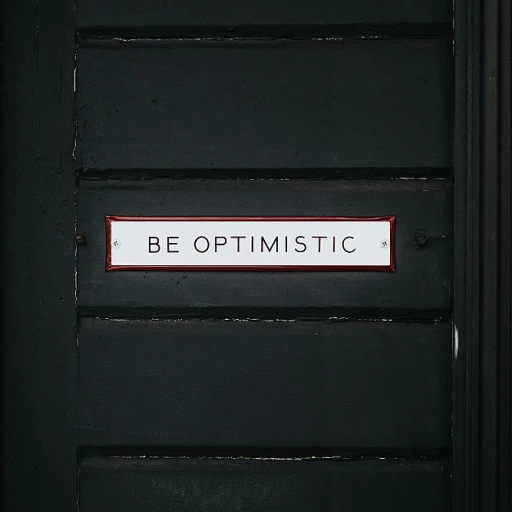
Understanding Business Overhead Expense Insurance
Grasping the Basic Concept of Overhead Insurance
Understanding business overhead expense insurance is crucial for those eager to protect their ventures from unforeseen disruptions. This type of insurance policy is designed to cover various overhead expenses that a business incurs during periods when the owner is unable to work due to disability. When the storm hits and a business owner faces a personal disability, this coverage steps in to meet business expenses that persist despite the owner's absence.
The benefit of having this insurance coverage is that it safeguards the financial stability of a small business by covering critical expenses. These often include salaries of employees, lease payments for office space, and utility bills among others. While some may think life insurance or personal disability insurance would suffice, boe insurance targets business-specific needs that these policies do not fully address.
By securing boe coverage, business owners commit to maintaining operational continuity, preserving the business for a smoother return to normalcy. To dig deeper into the nuances of fair compensation practices and their influence on financial security for businesses, check out this informative article on fair compensation practices.
Key Expenses Covered by Business Overhead Insurance
Critical Coverage Elements
The importance of business overhead expense insurance can be summed up in the various critical elements it covers that are essential for a business owner to consider. A comprehensive BOE policy ensures that the essential expenses are covered when the business owner is unable to work due to a disability. Whether a small business or a larger practice, financial burdens can be reduced significantly with BOE insurance, providing a sense of security during uncertain times.
Key Financial Safeguards
BOE insurance focuses on covering business expenses that are necessary for the continuation of operations. Some of the primary expenses include:
- Rent or mortgage payments: Maintaining your business premises without interruption.
- Utilities: Essential services like electricity, water, and internet.
- Salaries and wages: Ensuring employees continue to receive their paychecks, even when the business owner cannot work.
- Insurance premiums: Including continuation of existing insurance policies like liability and property insurance.
- Maintenance and repairs: Keeping the building and equipment in operational condition.
- Taxes: Covering local, state, and federal taxes to remain compliant.
Protecting Personal and Business Income
While focusing on the overhead expense, BOE insurance complements other forms of disability insurance such as personal disability income insurance. This allows for both personal and business trouble to be addressed without overwhelming financial pressure. During your life and practice years, having the right policies can be fundamentally beneficial, whether it’s through a long term income protection or other supportive coverage. Making informed decisions about what your insurance will cover ensures that both financial and operational aspects of your work will be safe even amid adversities. Explore more about fair compensation practices here.
The Importance of Business Overhead Insurance in Compensation and Benefits
The Role of Overhead Expense Insurance in Stabilizing Small Businesses
In the realm of compensation and benefits, securing business overhead expense insurance can be a strategic move for business owners striving to maintain financial stability. Business overhead expense (BOE) insurance provides a safety net, ensuring that essential overhead expenses are covered when unforeseen circumstances disrupt operations. These disruptions could include a business owner experiencing a period of long-term disability, which might otherwise impact both personal and business finances. BOE coverage complements other key insurance policies such as personal disability and life insurance, providing a holistic approach to income insurance. By covering crucial business expenses like rent, utilities, salaries, and insurance premiums, BOE policies ensure that the daily financial needs of a business are met, even when the owner is unable to work. The financial ramifications of overlooking the integration of overhead expense insurance into a business strategy can be significant. Absence of such coverage could lead to operational disruptions, affecting employee livelihoods and the overall stability of the practice. Thus, it is essential for business owners to evaluate their insurance portfolio and incorporate appropriate BOE policies to fortify their business against unexpected challenges. Investing in BOE insurance aligns with the strategic goal of balancing coverage and cost for compensation and benefits, rendering the business more resilient to external shocks. For further insights into striking this balance, consider exploring a practical guide for compensation and benefits. While it may appear as an additional expense, the peace of mind and financial protection offered by a well-thought-out BOE insurance policy can significantly outweigh the costs. Though often overlooked, business overhead expense insurance can be the differentiator that ensures a company's continuity amidst adversities, making it an indispensable element of a comprehensive financial strategy for business owners.Choosing the Right Business Overhead Expense Insurance
Factors to Consider When Choosing a BOE Insurance Policy
Choosing the right Business Overhead Expense (BOE) insurance policy requires careful evaluation of several crucial factors to ensure it aligns with your business needs. As a business owner, understanding these aspects will aid in selecting a plan that adequately supports your financial stability during unforeseen events.- Coverage Scope: Assess what expenses the policy will cover. Typical BOE insurance covers costs such as rent, utilities, employee wages, and other essential business expenses. Ensure the policy aligns with your specific overhead costs.
- Policy Limits: Evaluate the maximum payout amounts the insurance company will provide and ensure they are sufficient to cover your monthly overhead expenses. Consider your business size and unique requirements.
- Term and Waiting Period: Review the duration of the insurance coverage and the waiting period before benefits commence. Understanding these terms will help determine if the policy fits your business's long-term needs, especially in cases of short-term or long-term disability.
- Premium Costs: Compare premium rates across various insurance providers. Though cost should not be the sole determining factor, ensuring affordability without compromising coverage is crucial. Balance the premium costs with potential benefits.
- Insurance Provider Reputation: Investigate the credibility and trustworthiness of the insurance company. Research customer reviews and industry ratings to gauge their reliability in honoring claims and providing timely benefits.
- Integration with Existing Policies: Check how the BOE insurance integrates with other existing insurance policies, such as disability insurance or income insurance, to assure comprehensive protection. Seamless integration with personal disability and life insurance policies is beneficial.
Real-World Examples of Business Overhead Insurance in Action
Real-Life Applications of Business Overhead Insurance
Business overhead expense (boe) insurance can be a valuable asset when unexpected situations arise, affecting your ability to run your business smoothly. When an unforeseen disability or long-term illness impacts a business owner’s capacity to work, this insurance policy plays a critical role. Understanding the real-world scenarios where a boe policy can come to your rescue is essential for both small business owners and larger enterprises.
Here are a few practical examples illustrating the benefits and coverage offered by business overhead expense insurance:
- Scenario 1: Small Business Challenge - Imagine a small business owner of a dental practice who is suddenly unable to work due to a severe personal disability. With a comprehensive boe insurance policy in place, the essential business expenses such as payroll, rent, and utilities can be covered, ensuring the practice continues operations without financial strain.
- Scenario 2: Coverage for Critical Expenses - For businesses that rely heavily on specific employees, losing one to disability without warning can be detrimental. BOE insurance helps by covering overhead expenses during the period of absence. These can include the cost of hiring temporary staff, allowing the business to maintain operations with minimal disruption.
- Scenario 3: Keeping Financial Stability - Consider a scenario where a production company owner cannot oversee operations. Without BOE insurance, ongoing contractual obligations and associated business expenses could jeopardize the company’s stability. This insurance ensures financial commitments are met without draining personal resources or business savings.
Each of these examples illustrates how business overhead insurance provides a buffer against unforeseen challenges, helping maintain business continuity and protecting financial interests. Understanding and leveraging these policies wisely can be a significant part of your business strategy.













